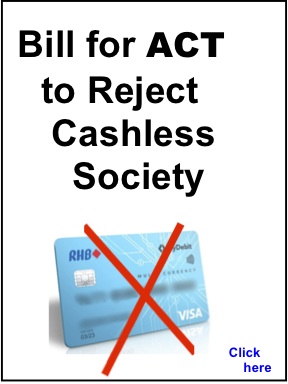When Judges Refuse to Process [Lawsuits & Liens] Why Citizens Should Be Concerned |
The refusal to process a lawsuit and enforce liens are the most serious infractions a judge can commit. Processing the legality of transactions is the primary function of the court. By refusing to do so, the judge violates his or her oath of office, a criminal offense. As shown everywhere today, without this basic law, a society breaks down. Yet why would a judge commit this criminal act? For two reasons: First, to prevent the plaintiff from prevailing in a case that embarasses a powerful defendant such as a corporation or Gov'mt agency\official. The judge doesn't want to empower the plaintiff with "a win." Second, the judge is confident that there will not be enough public backlash to force [him] (the court establishment) to follow the law. | So, no matter what course of action you take, only convincing the public to respond to the court's bad behavior will prompt the judge to process the case. In the letters below, Mr. Cobble is choosing to file criminal charges and liens against the judges and other court officers. (In State election case 23-ci-6012 (click here), filed Sept. 29, 2023, Jefferson County Circuit Court Judge Annie O'Connell has not yet required the defendants to Answer the Complaint.) Hence, there are obvious "social connections" to court cases. Every case involves the plaintiff seeking to correct a wrong committed by the defendant. Such as the letters below, cases with powerful defendants indicate they are injuring others (oftentimes many others). When judges refuse to process, they give defendants the approval to offend again. And wherefore, citizens not responding to judges' refusal to process is a primary cause of corruption, the break down in society. |








